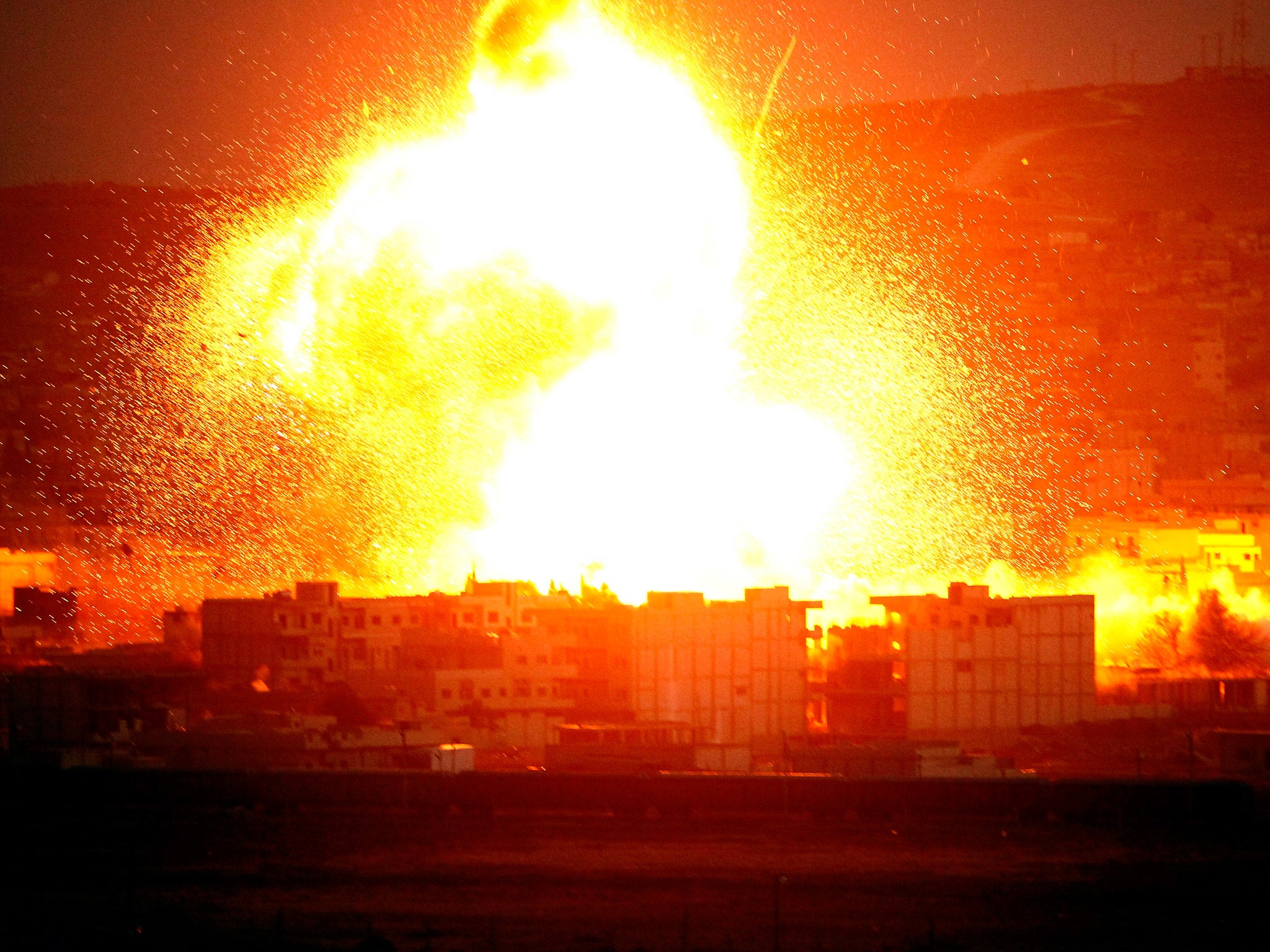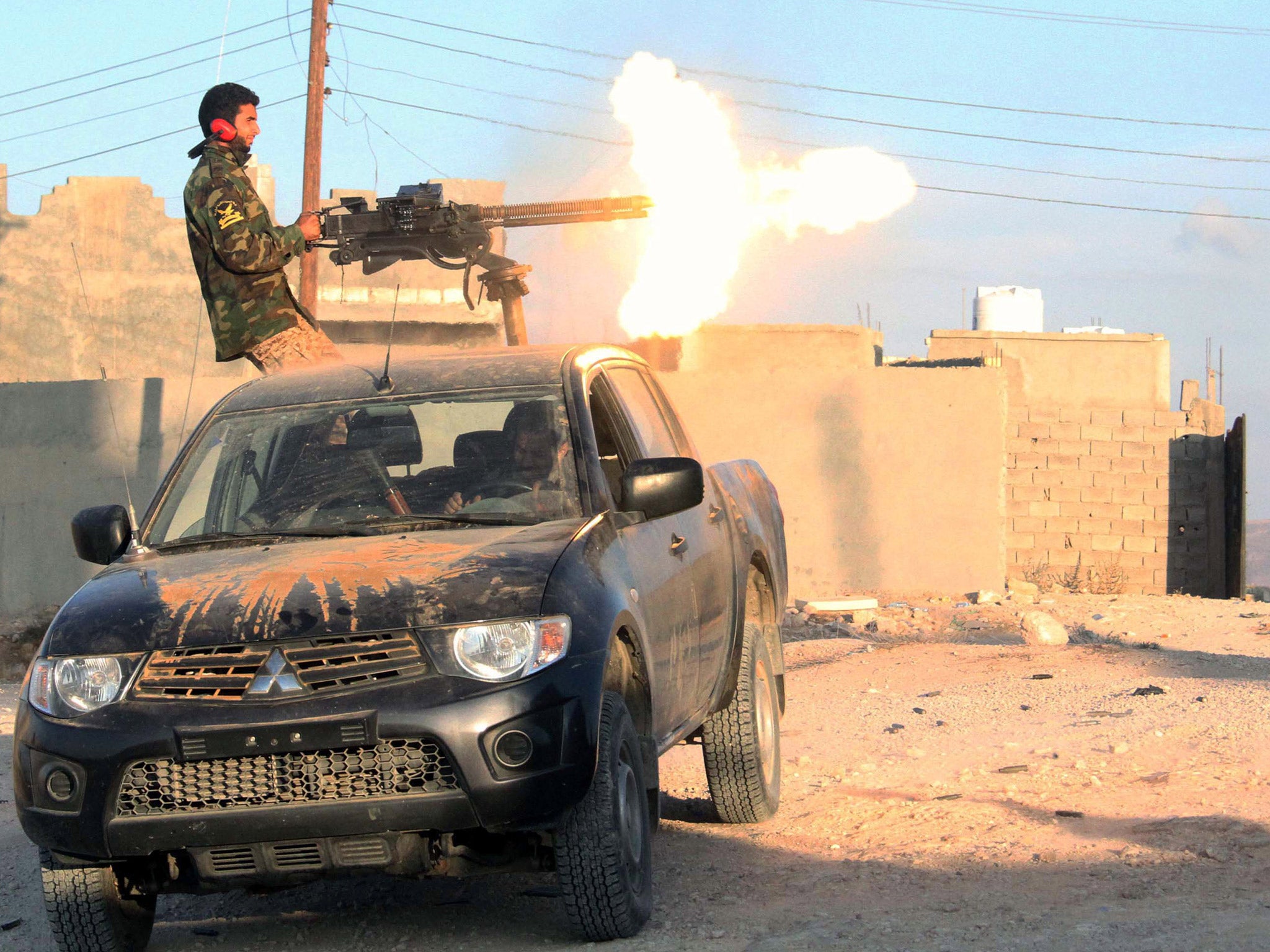Diplomacy not bombs will defeat Isis – the West is being sucked into sectarian conflict
Does it make military sense for Britain to pursue Isis into Syria?

Towards the end of the 1960s jungle war Britain fought to protect Sarawak [in Borneo] against rebel incursions, I received orders to lead my commando unit over the border and take the fight to the insurgents, based on the other side of the Indonesian frontier. It was a controversial policy, but an effective one– the war ended not long afterwards.
Britain claimed legality for these operations under the provisions in international law which, in some circumstances, permit a nation to pursue its right to self-defence onto the territory of a second state, where that state harbours or supports those who threaten its security.
It is no doubt this is the provision the Prime Minister has in mind when he says that Britain, as part of the “coalition” which has been “invited” by the Iraqi government to help defend its territory, is now legally justified in joining other coalition air forces already bombing Isis positions in Syria. Whether this is in fact so is a matter for lawyers, not me.

But whether this action, even if legal, is wise, is a different question. Does it make military sense for Britain to pursue Isis into Syria? Probably. Is it legal to do so? Possibly. Is this the most effective thing Britain can do to defeat Isis? Definitely not.
We are not losing the war against Isis because we do not have enough bombs – we are losing it because we do not have enough diplomacy.
The great military thinker Carl von Clausewitz famously said that war was the extension of diplomacy by other means. One of the reasons we in the West have suffered so many defeats in recent years is because we always seem to remember the war, but forget the diplomacy.
We see a problem in the world and our first instinct is to bomb it. We have become obsessed with high explosives as an instrument for peace.
George Bush Snr knew better. He carefully constructed a Middle East coalition before Gulf War one, making it seem Western forces were the instrument of Arab will – and he won.
George Bush Jnr ditched diplomacy in favour of Western “shock and awe” – and lost. We repeated the mistake in Afghanistan, using high explosives as a substitute for the kind of patient diplomacy to bring in the neighbours in a regional treaty, as we had done in Bosnia – and lost.
In Libya we could have created a wide regional coalition with countries like Turkey first to liberate the country and then rebuild it afterwards. Instead the West chose to blast Gaddafi out and then abandon the country to chaos afterwards.

And now we are doing it all over again. Only this time it is much more dangerous.
Some of us have been warning for three years that the real event taking place in the Middle East is a widening Sunni/Shia war which threatens to engulf the region. Isis is only part of this. But we have become so obsessed with the small picture and the short-term threat to us in the West, that we cannot see the bigger one.
There is now a real danger that we become the unwitting handmaidens of that wider conflict by creating a so called “coalition” to fight Isis which is too military, too Western, too small and far, far too Sunni.
It is not just the West or the Sunnis Arabs which are threatened by Isis. Turkey is too. And Tehran. And Moscow, which is struggling with Sunni jihadism in its Muslim republics.
For us in the West, the threat comes from jihadis returning from the battlefield. The Russian republics of Chechnya and Dagestan are the battlefield.
There is a real opportunity here, if only our obsession with high explosives would let us see it.
We will not destroy Isis just by killing more Muslim Arabs with Western bombs. And a few more British bombs will not change that.
As Clausewitz knew, no military action makes sense unless it is part of a wider diplomatic strategy. Our action against Isis isn’t and that is why it is failing.
The new rapprochement with Tehran (achieved, please note, through patient long-term diplomacy – no high explosives required) gives us a real opportunity.
And yes, why not Russia too? We have no choice but to play hardball with Moscow over Ukraine. But offering Putin a partnership on defeating the Sunni jihad which threatens us both would add huge weight to our ability to succeed and avoid the mistake of pushing Russia into a corner from which there is no escape.
If we want to make Britain safer, we will do it better by using our skills to help create the wider diplomatic coalition to smother Isis which will enable military action to succeed, rather than contributing our tiny portion of bombs to a policy that won’t.
Lord Ashdown was leader of the Liberal Democrats from 1988 to 1999 and served as a Royal Marine before entering Parliament
Join our commenting forum
Join thought-provoking conversations, follow other Independent readers and see their replies
Comments